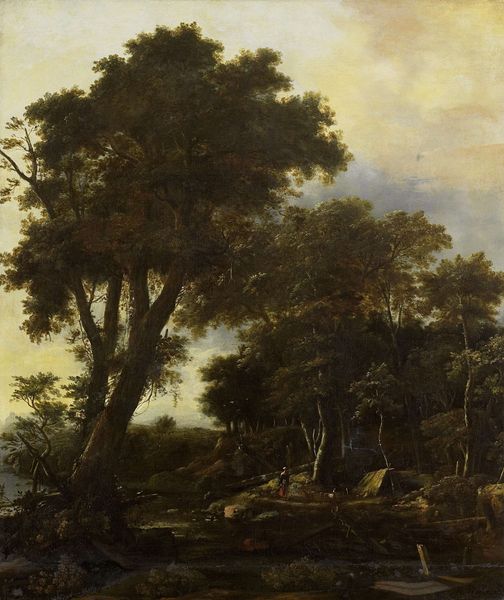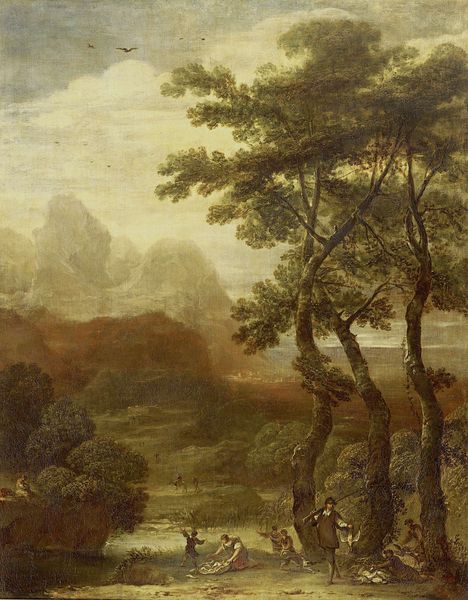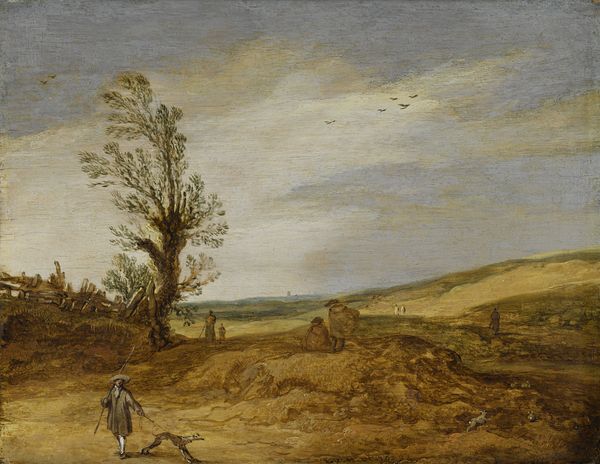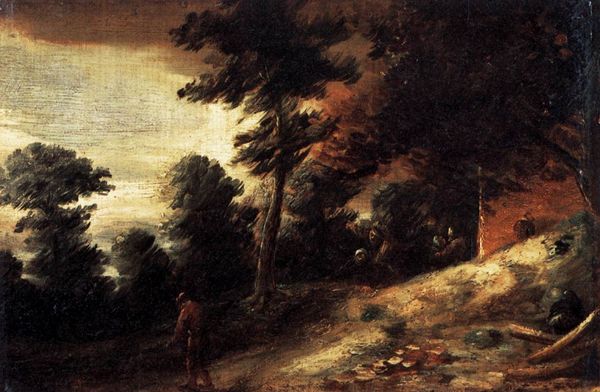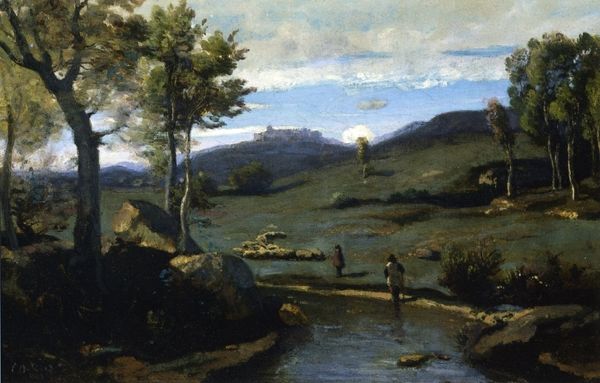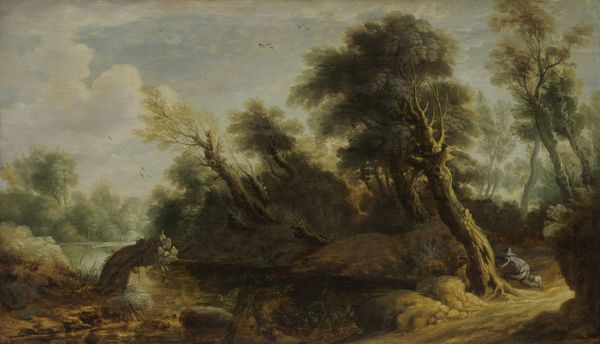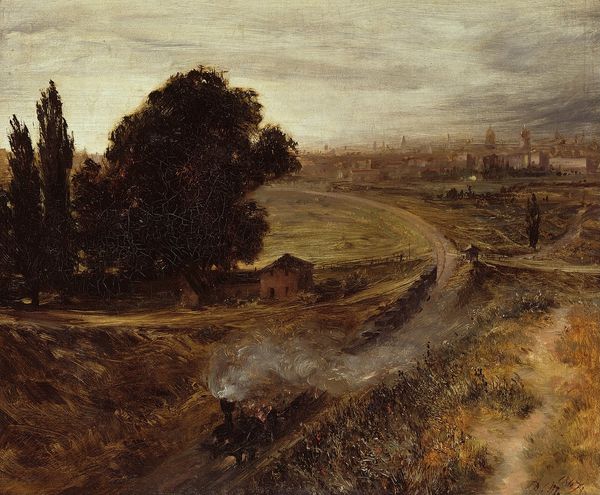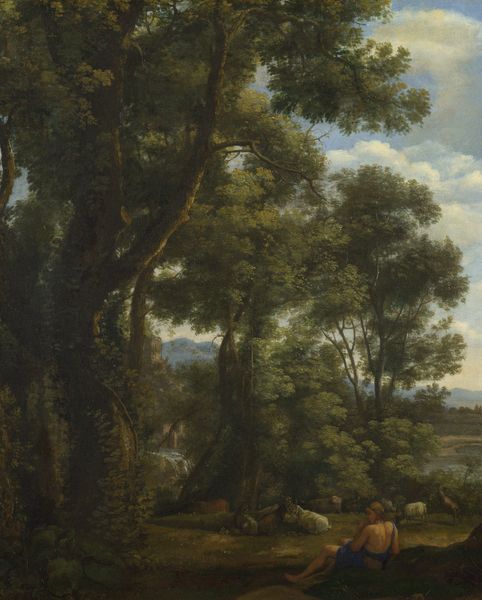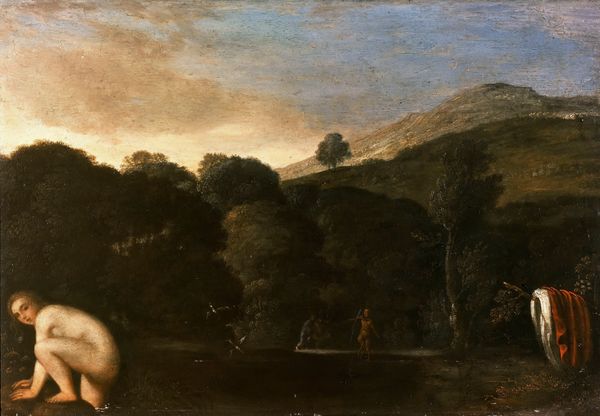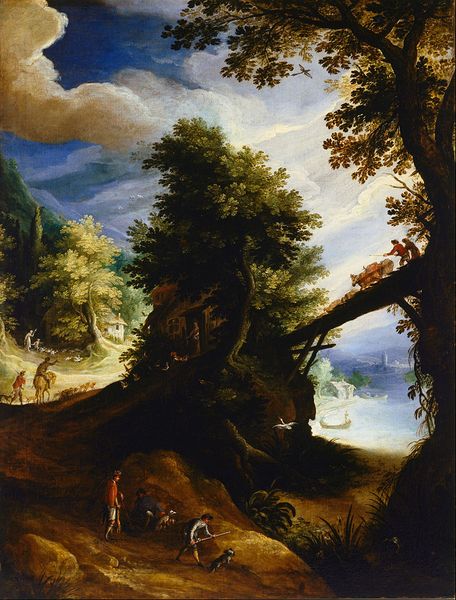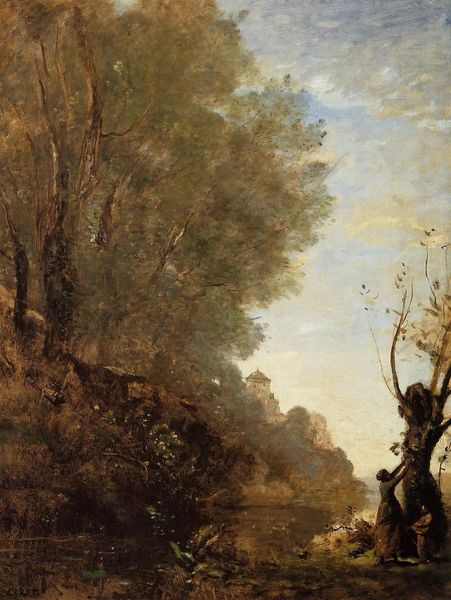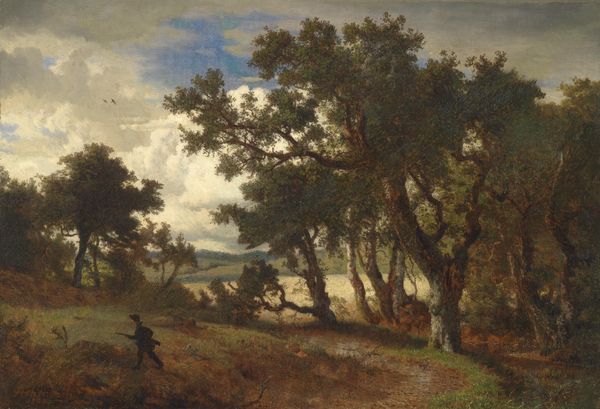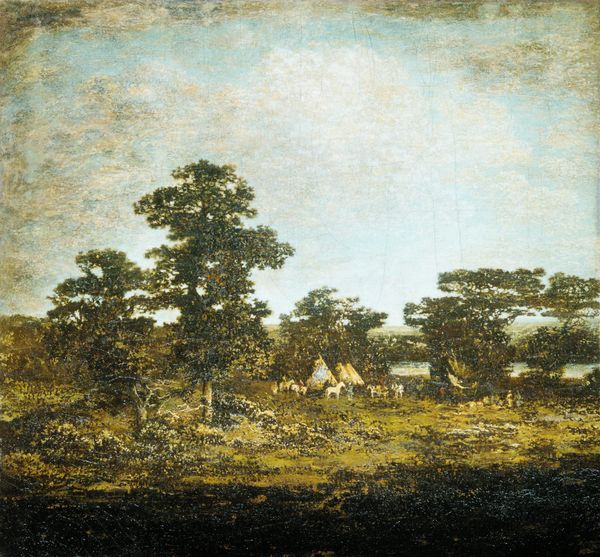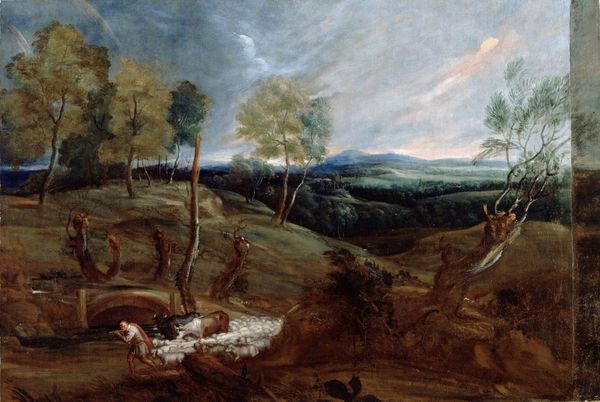
Dimensions: 19 x 15 in. (48.3 x 38.1 cm)
Copyright: Public Domain
Editor: Here we have Albert Pinkham Ryder’s “The Forest of Arden,” an oil painting from between 1888 and 1908. It feels like a scene plucked straight from a dream, all hazy light and muted tones. What kind of world was Ryder trying to capture here? Curator: Well, Ryder lived and worked in a rapidly industrializing America. Consider this painting in that context. His landscapes, including "The Forest of Arden," are often interpreted as a retreat from the modern world, an imagined space rooted in Romanticism’s focus on nature's sublimity and a kind of pre-industrial longing. Think of the Arts and Crafts movement, a similar impulse manifested in design and architecture around the same time. Editor: So it’s less about accurately depicting nature and more about longing for something…simpler? Curator: Precisely. And the reference to the Forest of Arden from Shakespeare's *As You Like It* adds another layer. What’s interesting is not just the idyllic imagery but what Arden represents culturally – a space of freedom and transformation, particularly attractive in a rapidly changing social landscape. Are you familiar with the public reception of Shakespeare in the United States at this time? Editor: Only that Shakespeare's plays were popular. I'm guessing more to it than that, though? Curator: Right, they were democratized! Affordable editions and public performances of Shakespeare made it extremely accessible, and using Shakespeare allowed the painting to speak to very broad aspirations for democratic culture. Editor: So Ryder is making a cultural statement by choosing this particular setting. It makes me think about how much we project onto landscape paintings. I was focused on the trees themselves, and missing how their symbolism reflects public feelings. Curator: Exactly. The politics of imagery shape everything. Now, when you look at it, do you still see just trees? Editor: No, now it feels like it reflects shared ideas and desires from its own era, things that resonate in different ways today.
Comments
No comments
Be the first to comment and join the conversation on the ultimate creative platform.
